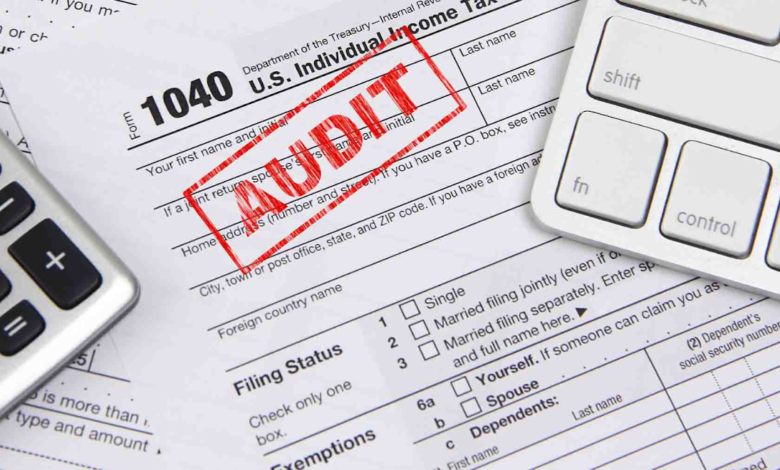The Impact of a Texas Sales Tax Audit on Your Business

Are you a business owner in Texas feeling the pressure of a looming sales tax audit? The impact of such an audit on your business can be significant, both financially and operationally. In this blog post, we will explore how a Texas state tax audit can affect your bottom line, your reputation, and your peace of mind. Stay tuned to learn more about navigating through this challenging process and coming out stronger on the other side.
How Does the Process Work?
The process of a Texas sales tax audit can be daunting and overwhelming for business owners, but understanding how it works can help alleviate some of the stress. In this section, we will discuss the step-by-step process of a sales tax audit in Texas.
Step 1: Notification and Preparation
The first step in the process is when you receive a notification letter from the Texas Comptroller’s office informing you of an upcoming sales tax audit. This typically occurs several weeks to months before the actual audit date. It is essential to start preparing for the audit as soon as possible by gathering all relevant documents and records related to your business’s sales tax filings.
Step 2: Entrance Conference
On the day of the scheduled audit, an auditor from the Comptroller’s office will arrive at your place of business and begin with an entrance conference. During this meeting, they will explain their role in the audit, go over any initial questions or concerns they may have, and give you an overview of what to expect during the process.
Step 3: Examination Phase
The examination phase is where most of the work takes place during a Texas sales tax audit. The auditor will review your records, including financial statements, invoices, purchase orders, and other supporting documentation to verify that your reported sales tax amounts are accurate. They may also conduct on-site inspections or interviews with employees to gather more information about your business operations.
Step 4: Exit Conference
Once the auditor has completed their examination phase, they will schedule an exit conference with you to discuss their findings. This meeting serves as an opportunity for you to ask any questions or provide additional information that may impact their final determination.
Step 5: Assessment or Closing Letter
After reviewing all evidence and information gathered during the audit, the Comptroller’s office will issue either a “no change” assessment or make adjustments based on discrepancies found during their examination. If there are changes, they will provide a closing letter outlining the adjustments and any additional taxes, penalties, or interest owed.
Step 6: Payment or Appeal
If you agree with the assessment, you must pay the amount due within the specified timeframe. However, if you disagree with the findings, you have the right to appeal through an administrative hearing or judicial review.
Understanding how a Texas sales tax audit works can help prepare businesses for potential audits and minimize any negative impacts on their operations. It is crucial to maintain accurate records and comply with all sales tax laws and regulations to avoid any issues during an audit.
The Potential Consequences of a Texas Sales Tax Audit
The state of Texas imposes a sales tax on most goods and services sold within the state. As a business owner, it is your responsibility to collect and remit this tax to the Texas Comptroller’s office. However, mistakes can happen, and if you are selected for a sales tax audit by the Comptroller’s office, it can have significant consequences for your business.
One of the potential consequences of a Texas sales tax audit is owing back taxes and penalties. During an audit, the Comptroller’s office will review your records to ensure that you have properly collected and remitted all required sales taxes. If any discrepancies or errors are found, they may assess additional taxes and penalties. These can add up quickly, especially if the audit covers multiple years or transactions.
In addition to financial penalties, a sales tax audit can also result in damage to your business’s reputation. The Comptroller’s office maintains public records of businesses that have been audited and their results. If your business is found to be non-compliant with sales tax laws, this information could become publicly available and negatively impact consumer perception of your company.
Another consequence of a Texas sales tax audit is the time and resources required to comply with the investigation. An audit can be an extensive process that requires you or your staff to gather documentation, meet with auditors, and potentially attend hearings or appeals processes. This can take away valuable time from running your business and may require you to hire outside help such as accountants or lawyers.
Furthermore, being selected for a sales tax audit can trigger audits from other agencies or taxing authorities. If one agency believes there are issues with your compliance in one area, they may investigate other areas as well. This not only adds more stress but also increases the likelihood of facing penalties from multiple entities.
It is important to note that even if an error was made unintentionally or due to confusion over complicated sales tax regulations, the Comptroller’s office is still authorized to assess penalties. Therefore, it is crucial for businesses to have a solid understanding of sales tax laws and ensure proper compliance to avoid potential consequences of an audit.
A Texas sales tax audit can have serious implications for your business. It is essential to properly collect and remit sales taxes and maintain accurate records to reduce the risk of being selected for an audit. If you do find yourself facing an audit, seek professional help and work closely with auditors to resolve any issues and minimize potential consequences.
Common Mistakes to Avoid During a Sales Tax Audit
A sales tax audit can be a nerve-wracking experience for any business owner. The thought of being scrutinized by government officials and potentially facing penalties can leave even the most experienced entrepreneurs feeling anxious. While it’s impossible to completely avoid a sales tax audit, there are certain mistakes that businesses commonly make during this process that can be easily avoided. In this section, we will discuss the common mistakes to avoid during a state tax audit to help you prepare and minimize potential risks.
1. Neglecting proper record-keeping: One of the biggest mistakes businesses make is failing to maintain accurate and organized records of their sales transactions. During an audit, tax authorities will review your records to verify that you have collected and remitted the correct amount of sales taxes. If your records are incomplete or disorganized, it can lead to discrepancies and raise suspicion, potentially resulting in additional assessments or penalties.
2. Misclassifying taxable goods or services: It’s essential for businesses to understand what goods or services are subject to sales taxes in Texas. Many businesses make the mistake of misclassifying taxable items as exempt or vice versa, resulting in errors on their returns. This can trigger an audit and lead to additional assessments if not corrected promptly.
3. Failing to report all sources of income: Another common mistake is not reporting all sources of income on your sales tax returns accurately. Businesses may overlook certain revenue streams such as online sales or out-of-state transactions when filing their returns, which can result in underreporting and potential audits.
4. Using outdated exemption certificates: In Texas, some goods or services may be exempt from sales taxes based on specific circumstances such as resale purposes or agriculture production exemptions. However, using outdated exemption certificates or not correctly applying them can result in incorrect reporting and potential liability during an audit.
Hiring Professional Help for a Texas Sales Tax Audit
If your business has been selected for a Texas sales tax audit, it is important to take the necessary steps to prepare for this process. One of the most crucial decisions you will need to make is whether or not to hire professional help for the audit. While it may be tempting to handle the audit on your own, there are several benefits to hiring a professional.
https://peisnerjohnson.com/audit-help/texas-sales-tax-audits having a professional represent your business during an audit can alleviate much of the stress and burden that comes with it. Audits can be time-consuming and require extensive attention to detail, which can take away from running your business effectively. By hiring a professional, you can focus on your day-to-day operations while they handle the audit process.
Moreover, professionals often have established relationships with auditors or tax authorities, which can help facilitate smoother communication and negotiations throughout the audit. This level of familiarity with auditors’ expectations and processes can also increase your chances of a favorable outcome.
While there may be initial costs associated with hiring professional help for a Texas sales tax audit, these expenses are often offset by their valuable expertise, guidance, efficiency in handling audits, as well as potentially reducing penalties or interest assessed during the audit. Ultimately, having a professional by your side can greatly impact the outcome of the audit and help protect your business’s financial well-being.
Conclusion
In conclusion, a Texas sales tax audit can have a significant impact on your business. It is important to be prepared and maintain accurate records to avoid any potential penalties or fines. By regularly reviewing and updating your sales tax procedures, you can minimize the risk of an audit and ensure that your business is compliant with state regulations. Additionally, consulting with a professional accountant or tax advisor can provide valuable insights and guidance for navigating the complexities of sales tax in Texas. Ultimately, staying informed and proactive will help protect your business from the consequences of a sales tax audit.




